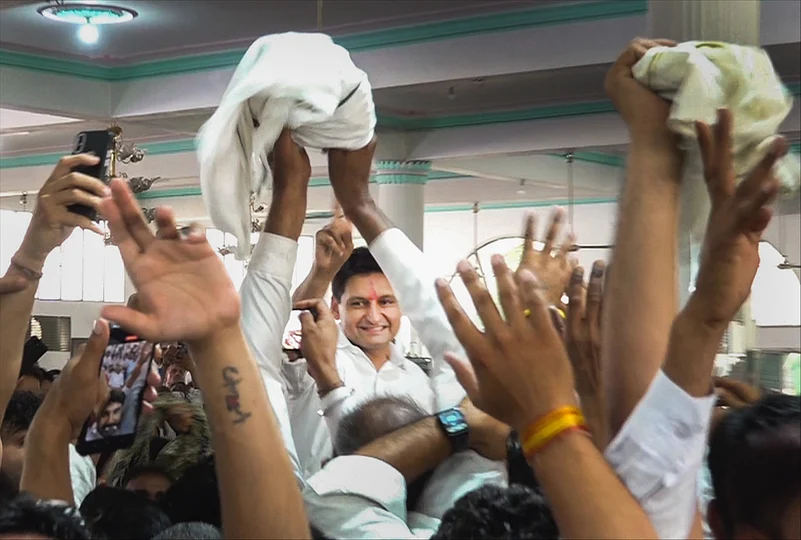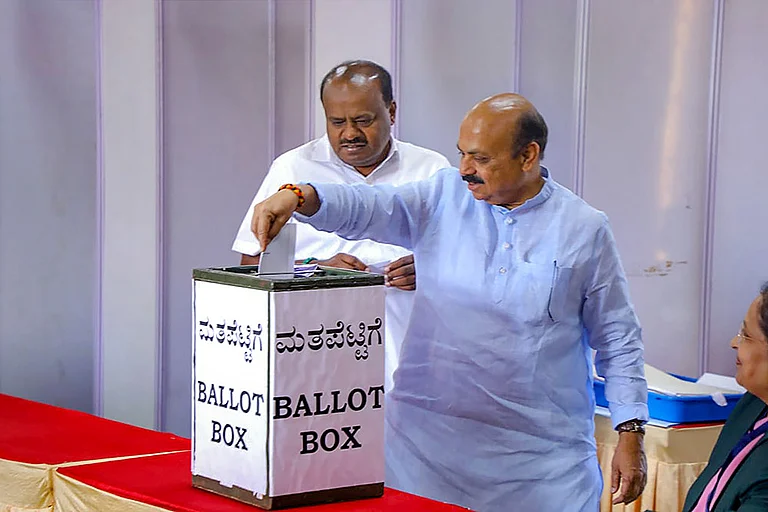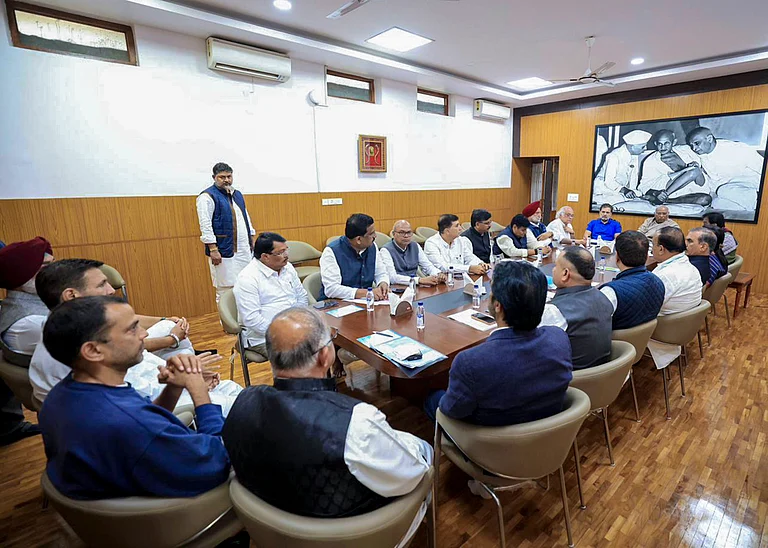The upswing in the Congress’s fortune in Haryana is very clear from the Lok Sabha results and trends. Haryana had a very keenly contested 2024 Lok Sabha elections. This has caught the imagination of the whole nation. We can infer certain long-term implications of these elections for Haryana politics. Haryana’s politics has once again normalised because the Jat-non jat divide on which the BJP had relied for sailing its boat in the Lok Sabha elections did not work. This division based on caste was one of the key factors that catapulted the BJP into prominence after 2014. This time, this did not work, and people’s issues took centre stage in deciding the outcome of the Lok Sabha polls. This is considered a positive sign for Haryana society that the divisiveness that occurred after the 2016 reservation movement is losing its steam, and a normalisation of societal relations could be seen.
The BJP focused on the charisma of Prime Minister Modi and did not emphasise or publicise its achievements at the State level. Haryana was in the thick of the Kisan movement, and also the issue of women wrestlers being victimised went against the ruling dispensation. The issue of Agniveer also took a toll on the BJP’s performance because Haryana is among the top states that provide major recruitment to the armed forces. The army has always been one of the important sources of employment for the people of the states. The BJP could not capitalise on the beneficiaries or labarthis of the Central Government because Haryana, being one of the rich states of the Country, does not face the same levels of poverty as witnessed in some of the eastern states of the country.
One inference that could be drawn from these results is that Haryana is also moving towards a two-party system because of the decimation of the leading regional party, i.e. INLD and JJP, from the scene of Haryana politics. The BJP has made long strides in Haryana politics since its’ victory in the 2014 Lok Sabha and Assembly elections. Now, the curiosity about the performance of INLD and JJP is not about the number of seats that the party got but about the number of places where it could save its deposits. The BJP, which was the junior partner of the Lok Dal and Haryana Vikas Party in the 1980s and 1990s, has, like in other states of the Country, shrunk the space of the partners who gave them some leverage in various states. So the pattern in Haryana is no different. The Shiv Sena, AGP, Janta Dal of Deve Gowda are some of the examples where role reversal has taken place. BJP, the junior partner, has overpowered its’ allies, who gave the BJP its entry into the politics of these states. So the question is, Is Haryana, like Rajasthan and Madhya Pradesh, moving towards a two-party system with the complete annihilation of the JJP and INLD? For the first time, it seems that the three Lal’s of Haryana politics are on the verge of oblivion, and their third generation could not hold on to the legacy of their forefathers.
The other inference that could be drawn from the results of the 2024 Lok Sabha elections is that with the Congress getting the majority of the seats in the State then, it would mean that its social support base in Haryana is intact despite a weak leadership at the Centre and fratricidal infighting between the different factions of Haryana Congress. One thing is crystal clear, Congress can always bounce back even after hitting the lows. The good performance of the Congress has clearly tilted the weight in favour of Bhupinder Singh Hooda, who has emerged as the colossus in Haryana politics, decimating not only his opponents in the BJP but also the different
factions within the Congress who are opposed to Hooda’s politics. Bhupinder Hooda had a greater say in the distribution of Lok Sabha tickets. A good performance has boosted his power not only within the party but also at the State level. Hooda has clearly emerged as the challenger to the BJP in the upcoming Assembly elections to be held in September-October, 2024.
The change of the Chief Minister just before the elections did not pay dividends to the BJP, this move could not save the ruling party from the strong anti-incumbency that could be observed at the ground level by discerning observers of Haryana politics. For the BJP, a decline in the number of seats will lead to a churning of the party structure in the State, a sign of which could be seen in the change of the Chief Minister just before the elections. The bad performance is likely to lead to the rolling of many heads within the party and government set-up.
After the results of the Lok Sabha elections, it will be a difficult task for the BJP to get its act together in the 2024 Assembly elections. Haryana has, in the last 40 years, not given a majority twice consecutively to any political party. Bhupinder Hooda, in 2009, could not get a majority, and he had to poach on the Haryana Janhit Congress MLAs to attain a majority in the Assembly. The same was the case with Manohar Lal Khattar, also when in his second term, the party could not secure a majority in the 2019 Assembly elections and had to rely on a post-poll alliance with the JJP. The BJP, it seems, will not be able to duck the anti-incumbency against its rule in the coming elections and also has to face a resurgent congress, which has emerged as the strong opponent not only in the state but also at the National level.
So the results of these Lok Sabha elections in Haryana, to some extent, are a pointer towards the declining fortune of the BJP and tough competition that it has to face
in the Vidhan Sabha elections to be held at the end of 2024. The results of the Lok Sabha seats in Haryana clearly indicate the emergence of Bhupinder Singh Hooda as the prima-donna of Haryana politics. Bhupinder Singh Hooda has clearly given a new life to the Congress party in the State, and the road to the succession of Deepender Hooda has become smooth and obstacle-free. For Khattar also, this could be the end of his innings in state politics. The BJP also has to look for new leadership at the State level who could fill the vacuum and stop the down slide of the party in the State.
Prof Rajendra Sharma, Head, Department of Political Science, MDU, Rohtak











.png?auto=format%2Ccompress&fit=max&format=webp&w=768&dpr=1.0)

















